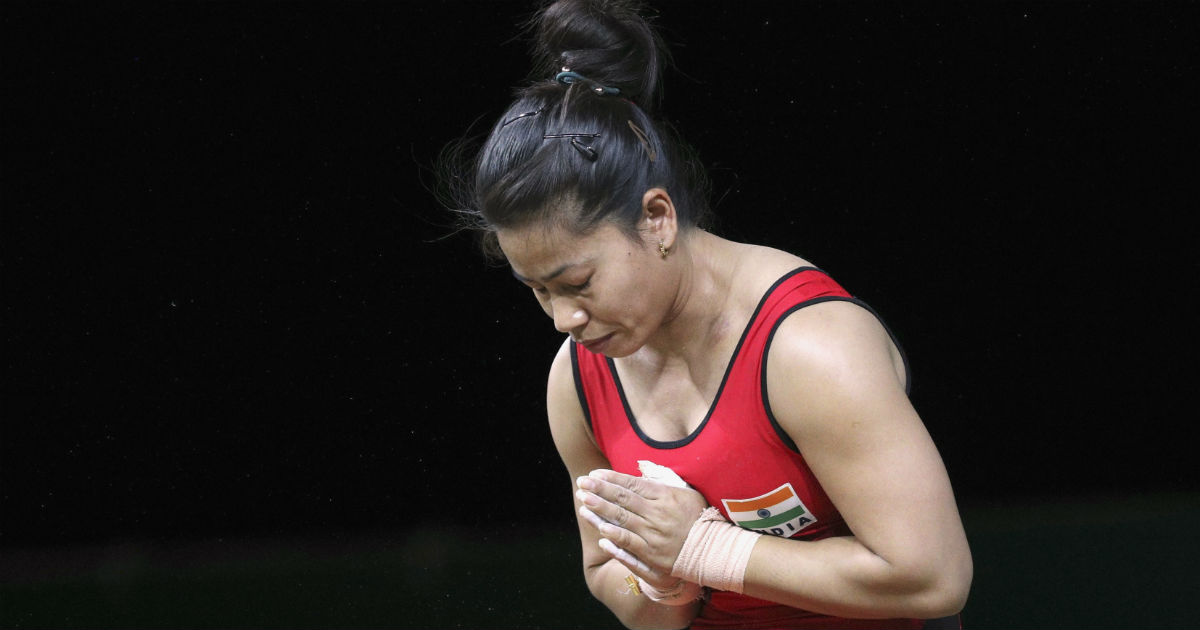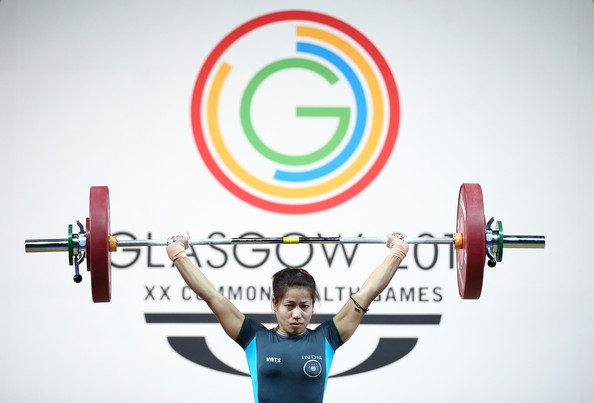Begin typing your search above and press return to search.
Featured
The curious case of Sanjita Chanu: A doping violation by the Commonwealth Games gold medalist

On May 30, 2018, predictable shock waves were sent throughout the Indian sporting community when 2018 Gold Coast Commonwealth Games medalist Sanjita Chanu was implicated in a dope test. The release on the website of the International Weightlifting Federation ended with the sentence, "IWF will not make any further comments on the case until it is closed," following a declaration that due process is underway and decisions, when taken shall be updated. A few scenarios to be prepared for are as follows  By contrast, Sanjita Chanu's results, the positive testing for Testosterone, are based on an out-of competition test taken prior to the World Championships in November 2017- the same tournament where her fellow Manipur lifter scripted history to lift the Gold in the 48kg category. In the competition held at Anaheim, California, Sanjita Chanu had then failed to make a mark in her weight category, finishing 13th with a total lift of 177kg.
By contrast, Sanjita Chanu's results, the positive testing for Testosterone, are based on an out-of competition test taken prior to the World Championships in November 2017- the same tournament where her fellow Manipur lifter scripted history to lift the Gold in the 48kg category. In the competition held at Anaheim, California, Sanjita Chanu had then failed to make a mark in her weight category, finishing 13th with a total lift of 177kg.
- If indeed found guilty, Sanjita Chanu will face a suspension of up to four years from the sport that she has slowly come to become the face of in addition to another lifter from her state, Mirabai Chanu
- Intentional sabotage, as has been alleged in the case of Narsingh Yadav, and ignorance to the ingestion of banned substances remain definite but completely unjustified possibilities.
 By contrast, Sanjita Chanu's results, the positive testing for Testosterone, are based on an out-of competition test taken prior to the World Championships in November 2017- the same tournament where her fellow Manipur lifter scripted history to lift the Gold in the 48kg category. In the competition held at Anaheim, California, Sanjita Chanu had then failed to make a mark in her weight category, finishing 13th with a total lift of 177kg.
By contrast, Sanjita Chanu's results, the positive testing for Testosterone, are based on an out-of competition test taken prior to the World Championships in November 2017- the same tournament where her fellow Manipur lifter scripted history to lift the Gold in the 48kg category. In the competition held at Anaheim, California, Sanjita Chanu had then failed to make a mark in her weight category, finishing 13th with a total lift of 177kg. Why did it take so long?
Neither the IWF not the Indian Weightlifting Federation have come up with a satisfactory explanation on why the results took so long. Even if we set aside negligence on the part of the athlete for a second here, the apparent negligence on the part of the world body and a lack of initiative to end speculation has failed to clear things up. For one, the athlete in question has competed in at least two major tournaments since the test was taken and before the results were announced. Not counting the one where she finished 13, what about the Commonwealth Games where Sanjita massively improved on her World Championship performance to lift a total of 192kg at Gold Coast? Back in April, when she achieved her feat, she was hailed for her massive improvement. In fact, India's gold rush in weightlifting at the Commonwealth Games had come as a solace to many who had long watched the sport decline over a plague of injuries and substance abuse. 2016, the year of the Olympics, had yielded no such cases among Indian lifters but 2017 saw one- Gold medalist at the 2016 South Asian Games in Guwahati, Sushila Panwar. Back then, it had been a dope test conducted by the National Anti Doping Agency on it National Campers in March, 2017. The results were promptly published in April. Is it then normal for a result to take this long to be published as was the case with Sanjita Chanu? Clearly not. The only near-close explanation that one can find in the recently enforced IWF anti-doping policy is the following.IWF may request that laboratories analyze its Samples using more extensive menus than those described in the Technical Document.
It may be possible for the international administrative body to ask for a more thorough check of the concerned sample than is prescribed by WADA. In Sanjita's case, the substance found was 1-Testosterone, a synthetic anabolic-androgen steroid (AAS) differing from testosterone in its chemical make-up. Its effects on the body include elevated muscular strength.
Furthermore, as per WADA's Results Management booklet,
In the interest of fair, effective sport justice, any asserted ADRV should be prosecuted in a timely manner. Irrespective of the type of ADRV involved, any ADO should be able to conclude Result Management and the hearing process within a maximum of 6 months of the date of commission. (The Date of Commission being defined as the date of sample collection)
It's easy to claim ignorance when it comes to doping in India
India's brush with Doping had reared its ugly head back during the Commonwealth Games too when the No-Needle policy had been violated by members of the Boxing contingent. The misdeed had then occurred as a result of ignorance and included a possession and administration of needles even though strict regulations were in place not to.
Softer advocates of anti-doping laws have, over the years argued against zero tolerance which leaves no room for inadvertent mistakes. The argument often given in this case is that the socio-economic background of athletes may prevent them from correctly understanding prohibited substances thus allowing for cases of alleged substance abuse. After all, an athlete is in no position to cross-check the components of a supplement but how often is this reason going to be pulled up. In September 2015, the Food Safety and Standards Authority of India signed a five-year agreement with the National Anti-Doping Agency (NADA) to install facilities in its laboratories to test for the restricted or illegal substances in food and nutritional supplements. It was reported in 2017 that the Indian government was discussing a new legislation to make athletic doping a criminal offence, with the proposed law applicable to manufacturers, suppliers, and sports coaches. Back then, an already imperfect criminal justice system was the argument given which had prevented this proposition from turning into something more substantial. In March 2018, the Food Safety and Standards Authority of India had joined hands with NADA to ensure more transparency in a system which would put an end to accidental ingestion of hitherto banned substances but that system itself is far from operational. What is the way forward?
As is her right, Sanjita Chanu has now asked for a B Sample test which is the only logical way forward. In this, she has the backing of the Indian Weightlifting Federation. As quoted by PTI, "I am sure Sanjita has not taken any banned drugs. I am confident we will prove her innocence," said General Secretary of the Indian Weightlifting Federation, Sahadev Yadav Already, India is facing a cut in its earned quota places for Weightlifting in the Tokyo 2020 Olympics. New rules state that countries with 10-19 doping violations over 2008-2020 will be limited to two men and two women in Tokyo. Nine countries including India fall in the second category. The initiative was lauded as a positive step towards clean sports. The above may not affect the lifters of the subcontinent much because that is what India sends to the multi-sport event. An inclusion in the Target Olympic Podium Scheme this year for Sanjita Chanu may see a rude miss if she is indeed found guilty on the back of her B-Sample test. What it does not affect is the course of the writ asking for the Arjuna Award to be conferred on the lifter. That speaks of her achievement between 2013-2016, at a period where there have been no positive tests for the Manipur-born lifter.Next Story

